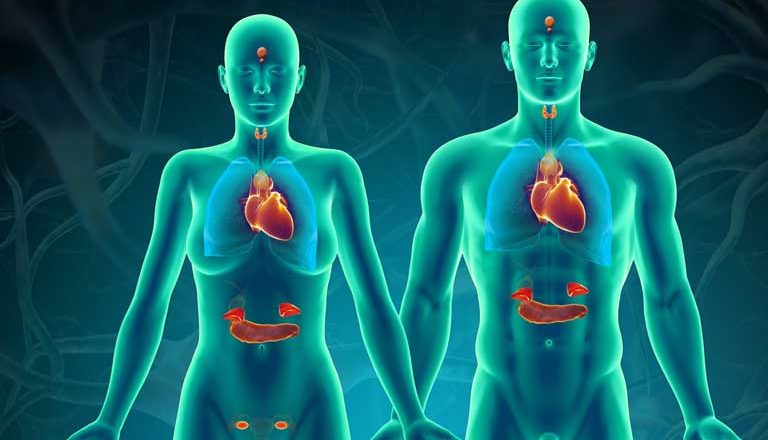The endocrine system consists of several glands; all are in different parts of the body,that secrete hormones directly into the blood rather than into a duct system. Therefore, endocrine glands are regarded as ductless glands. Hormones have many different functions and modes of action; one hormone may have several effects on different target organs, and, conversely, one target organ may be affected by more than one hormone.
The medical specialty of endocrinology involves the diagnostic evaluation of a wide variety of symptoms and variations and the long-term management of disorders of deficiency or excess of one or more hormones. The diagnosis and treatment of endocrine diseases are guided by laboratory tests to a greater extent than for most specialties.
Endocrinology involves caring for the person as well as the disease. Most endocrine disorders are chronic diseases that need lifelong care. Some of the most common endocrine diseases include diabetes mellitus, hypothyroidism and the metabolic syndrome. Care of diabetes, obesity and other chronic diseases necessitates understanding the patient at the personal and social level as well as the molecular, and the physician–patient relationship can be an important therapeutic process. Apart from treating patients, many endocrinologists are involved in clinical science and medical research, teaching, and hospital management.


